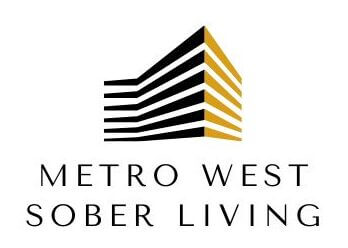Behavioral Addiction's

What are Behavioral Addictions?
Addiction is a term that is commonly associated with substance abuse, such as drugs and alcohol. However, addiction can also refer to compulsive behaviors that a person finds difficult to control. Examples such as gambling, shopping, gaming, and even social media use. These compulsive behaviors are known as behavioral addictions and are becoming increasingly common in today’s digital age.
Behavioral addictions, also known as process addictions, involve activities that provide a reward or pleasurable experience. Then leading to a person developing an unhealthy dependence on them. These activities can be anything that stimulates the brain’s reward system, such as the release of dopamine.Dopamine is a chemical that plays a key role in motivation, pleasure, and reward.
Behavioral addictions can have a significant impact on a person’s life, affecting their physical, mental, and emotional well-being. As well as their relationships and financial stability. They can lead to increased stress, anxiety, depression, and isolation, and can interfere with a person’s ability to carry out daily responsibilities.
Treating Behavioral Addictions
Treating behavioral addictions can be challenging, as they often involve complex psychological, social, and biological factors. The treatment approach for behavioral addictions typically involves a combination of therapy, medication, and lifestyle changes. All depending on the individual’s specific needs. Metro West Sober Living provides the structure and accountability to help anyone overcome any addiction.
Cognitive-behavioral therapy (CBT) is a common form of therapy used to treat behavioral addictions. It is a short-term, goal-oriented therapy that aims to help individuals identify and change negative thought patterns and behaviors. CBT helps individuals develop coping strategies and skills to manage their addictive behaviors and reduce the risk of relapse.
Another form of therapy used to treat behavioral addictions is psychodynamic therapy. This type of therapy focuses on the unconscious processes that drive addictive behavior and aims to help individuals understand the underlying emotional issues that contribute to their addiction.
In some cases, medication may be prescribed to help manage the symptoms of behavioral addictions. For example, selective serotonin reuptake inhibitors (SSRIs) are commonly used to treat compulsive behaviors such as gambling, shopping, and sex addiction. These medications work by increasing the levels of serotonin in the brain, which can help reduce the urge to engage in addictive behaviors.
Lifestyle changes can also be an important part of treating behavioral addictions. This may involve developing healthier habits, such as regular exercise, healthy eating, and practicing stress-reduction techniques, such as meditation or yoga. It may also involve making changes to a person’s environment, such as removing access to triggers or setting boundaries around the use of technology.
Treating Behavioral Addiction's at MetroWest Sober Living
Support groups can also be beneficial in treating behavioral addictions. They provide a safe and non-judgmental environment for individuals to share their experiences and receive support from others who have gone through similar struggles. They can also provide a sense of accountability and motivation to stay committed to the recovery process.
In conclusion, behavioral addictions can have a significant impact on a person’s life, and treating them can be challenging. The treatment approach for behavioral addictions typically involves a combination of therapy, medication, and lifestyle changes. Cognitive-behavioral therapy, psychodynamic therapy, and medication are common forms of treatment used to manage the symptoms of behavioral addictions. Lifestyle changes, such as developing healthier habits and setting boundaries around technology use, can also be important in treating behavioral addictions.
Finally, structured sober living can provide a sense of community and accountability for individuals seeking to overcome their addictive behaviors. Helping address the underlying emotional and psychological issues driving addictive behavior and implementing a comprehensive treatment approach. Individuals can successfully manage their behavioral addictions and lead healthier, more fulfilling lives. Metro West Sober Living’s structured atmosphere provides the accountability necessary to help any individual with behavioral addictions.
